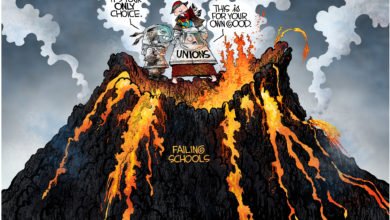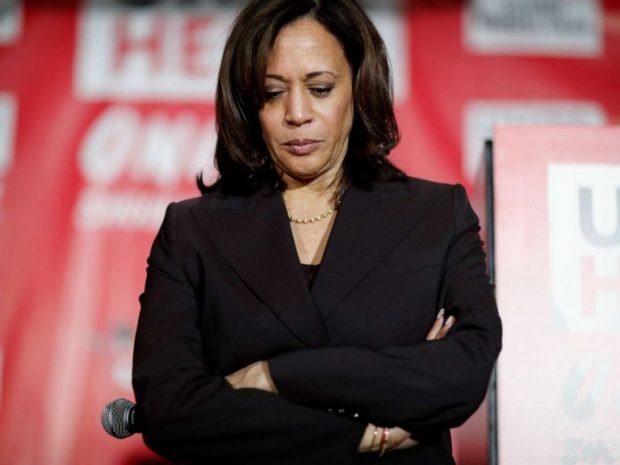$15 Trillion Later

Cato Institute’s director of health and welfare studies Michael Tanner wrote The American Welfare State How We Spend Nearly $1 Trillion a Year Fighting Poverty – and Fail. The Cato Institute recently released his findings. They are, to say the least, not encouraging. Tanner states that America has spent $15 trillion in the “war on poverty” since 1964. And what do we have to show for all that money spent? A poverty rate that about the same as in 1964, an entrenched bureaucracy, and a population increasingly dependent on government handouts. When Johnson declared war on poverty, the US poverty rate was 19 percent and rapidly falling. Increasing prosperity caused by the free market, and civil institutions such as churches, charities, and fraternal organizations, was already making poverty a rarity in the US. Today the poverty rate is 15.1 percent and climbing.
The war on poverty has been a big success for the bureaucracy. At the federal level alone there are now 126 separate anti-poverty programs administered by seven different cabinet agencies and six independent agencies. On June, 2011, the Subcommittee on Regulatory Affairs, Stimulus Oversight and Government Spending of the House of Representatives Committee on Oversight and Government Reform held a hearing on the issue of “Duplication, Overlap, and Inefficiencies in Federal Welfare Programs.” General Accountability Office (GAO) Chief Operating Officer Patricia A. Dalton said:
… that the GAO could not identify all existing welfare programs in the various federal departments and agencies or determine how much they cost. She said further that she and the GAO could not give a specific number of welfare programs or even “hazard a guess” as to what percentage of those programs are actually accomplishing the purposes for which they were created.
Tanner stated that welfare spending increased under Bush, but Obama has thrown money at anti-poverty programs at an unprecedented rate. Since taking office, the Obama administration has increased spending on welfare programs by more than $193 billion. “The vast majority of current programs,” Tanner state, “are focused on making poverty more comfortable – giving poor people more food, better shelter, health care, and so forth – rather than giving people the tools that will help them escape poverty. The best way to create wealth is not through government action, but through the power of the free market.”
But Johnson couldn’t leave well enough alone. In the name of “equal outcome,” he declared war on poverty and created the welfare system. On June 4, 1965, at a Howard University commencement address, Johnson expressed his support for equal outcomes policies directed at Black Americans. He linked economic rights with civil rights and equality of outcome with equality of opportunity. [emphasis mine] Johnson said, “It is not enough to open the gates of opportunity; all our citizens must have the ability to walk through those gates.” [again, emphasis mine] That comment led to race- and gender-based quotas and preferences, what we now refer to as affirmative action.
Now let’s turn our attention to equal opportunity. I was a rather slow and mediocre race car driver. My only claim to fame (such as it is) is that Bobby Allison once lapped me in a 5 lap race! But I had the same opportunities as Bobby Allison, and that is the point of this diatribe. I had the same access, the same equal opportunity, as Allison to money, cars, and sponsors. The fact that I didn’t have Allison’s talent for driving race cars was a personal impediment.
Yet had the same logic that Johnson used in 1964-5, I could have/would have been competitive with Allison, not by making me faster, but by making Allison slower and making him wait for me.
Failing to reach one’s goal (in my case, driving fast) would clarify the meaning of the words “access” and “opportunity.” But clarification would destroy the political usefulness of these words, along with the government programs that are used to justify them. No politician asks how access was denied. Politicians don’t stop to define words, suggesting that external barriers are the problem. and that government intervention is the only solution. “Equal access” does not automatically lead to “equal outcomes” in racing or anywhere else. But words like “equal access” have led to much political success.
Kurt Vonnegut, in 1961, wrote about equality of outcomes in Harrison Bergeron, and about Harrison’s ultimate rebellion against forced equality of outcomes. He was shot.
I think it’s fairly clear that after transferring $15 trillion to the poor that the concept of “equal outcome” has not, nor will it ever work. All we can do is ensure “equal opportunity,” then let the cards fall where they may.
But that’s just my opinion.
Please visit RWNO, my personal web site.




